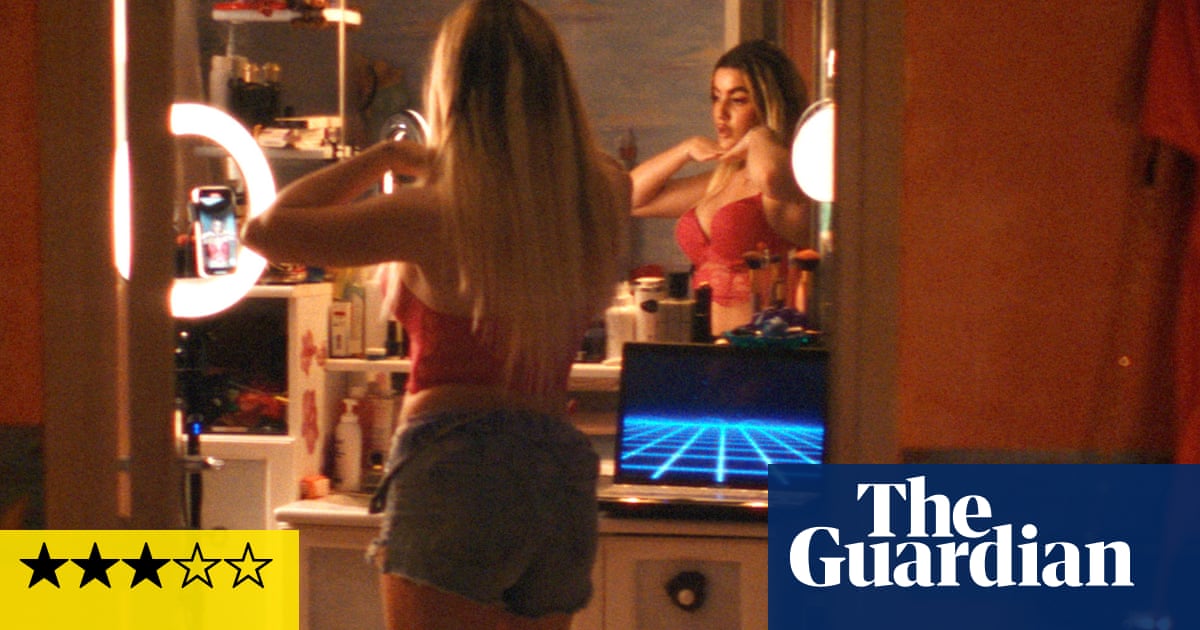
Feature first-timer Agathe Riedinger is bringing the TikTok energy for this story of a wannabe Insta influencer-princess from the wrong side of the tracks – but the director is also bringing some pretty old school social realism, exerting its downward gravitational pull. The result is forthright and fluent and fiercely acted by a newcomer lead who, in the time-honoured style of movies like this, is defiant, vulnerable and front and centre of almost every shot. But it also sometimes treads water in terms of narrative, running out of ideas before the end, and its final ambiguity about an ultimate success that is there to be hallucinated rather than achieved feels anticlimactic.
Liane, played by Malou Khebizi, is a 19-year-old with a French and Italian background living in Fréjus in the south of France. She was once given up for foster care by her troubled mother but now taken back home and is now in charge of babysitting her kid sister, whom she is busily turning into a mini-me version of her own brassy, sexualised image. Liane shoplifts and sells the stolen goods – which has paid for her breast-implant surgery and she has also had her lips done. She hangs out with her friends, getting drunk, but is fastidious about how and with whom she’s having sex; she has thousands of followers on her Only-Fans-type insta (although oddly, it doesn’t occur to her to have an actual Only Fans account). Liane also has a poignantly religious sense of her own heroic martyrdom, her ill-treatment at the hands of online haters, men and her appalling mother.
Then a miracle happens: a reality TV producer to whom she sent a raunchy video wants her to audition. Liane is surely about to ascend into the paradise of celebrity and wealth. Her icily interrogative “audition” – undressed to her underwear facing the unseen producer behind the camera – is in many ways the most interesting thing about the film. This is an authority figure (to whom Liane is unquestioningly obedient as she is to no other such figure) asking questions to which the answers have to emphasise the bad-girl image which she had to deny or suppress in front of social services, but which is as artificial and constructed as the good-girl image officialdom expects.
After the audition, we see how Liane is now in what can only be described as the euphoric version of PTSD. She thinks she has the reality show in the bag. Everything that she sees – and which the audience sees – is just the old world, the old neighbourhood and the lame friends that she is (surely) leaving behind, all sentimentally transfigured by her imminent triumph. She is distant with a boy who loves her – because he is another foster kid and that reminds her of everything she wants to shrug off.
But the weeks and months go by and the TV producer hasn’t called her back. Is failure her destiny? Not necessarily. Everyone knows that people like Liane do indeed get to be reality TV stars – for a while, anyway. And Liane has undoubtedly shown energy and imagination. Is there a residue of hope and possibility here, whatever happens with the audition? It’s hard to tell. The film itself can’t quite decide if Liane’s aspirations are obviously vacuous and she would be better off cultivating the quieter values of intimacy and love, or if Liane is right to want more, to aim high and use what she has.
Then there’s an odd scene where she’s caught shoplifting and somehow escapes (we assume) from the uniformed security guards. She gatecrashes a fancy party and offers three creepy guys a private dance for a thousand euros – but gets cold feet halfway through and runs away. (Did she leave the cash behind? If not, the guys were unexpectedly gentlemanly about the whole thing.) It’s indicative of the film’s indecision about what kind of moralism to assert. At all events, Khebizi gives a heartfelt performance.
Source: theguardian.com





















